The recent studies conducted by the prominent research organizations IDC and Gartner report that around 70-80% of the enterprise data generated today is unstructured. Digital revolution is driving the proliferation of data in multiple forms- text, image, visual, video, voice or speech. The necessity to derive meaning from the vast labyrinth of unstructured online data is making us turn towards Natural Language Processing (NLP) technology. Natural Language Processing involves application of those computational techniques that enables us to do analysis and synthesis of natural language and speech.
In this post, we will take a look at two of the leading Natural Language Processing tools- IBM Watson and Stanford NLP. Before we move on, it’s better to know the application of NLP in today’s business scenarios.
Where is NLP applied?
-
Following are some of the key areas that benefit from Natural Language Processing.
-
Text Analysis: One of the key uses of NLP is sentiment analysis, that businesses use to understand how their customers feel emotionally about their products or services. Such kind of data is used to improve their service.
-
Email Filtering: To understand if an email going through the server is a spam, based on content analysis.
-
Call Centers: Enquiries, complaints, problems, or arguments from customers produce huge amounts of data. Doing a sentiment analysis of this data can lead to various actionable insights, thereby enhancing customer experience.
-
Clinical Data: Using NLP, it is easy to summarize insights from massive volumes of medical publications. Also identifying experts in a particular area of medicine happen in less time with NLP.
-
Legal proceedings: Courts can use NLP techniques to quickly scan and find out minute details from past court records and reports. This improves the speed and accuracy of their work.
-
Search Engine Indexing: Leading search engines like Google and Bing use NLP tools to extract most popular terms from texts and populate their indexes accordingly. NLP technology is vital in parsing search queries.
Understanding Natural Language with IBM Watson
IBM Watson is one of the most prominent Natural Language Processing tools that supports information retrieval via question answering. Watson is guiding us with decision-making in literally any domain, such as weather, healthcare, insurance, banking, media and more. Let us see how IBM Watson works through an example.
We will analyze how Watson NLP works using the demo available on the IBM website.
- Open the following URL in a browser
https://natural-language-understanding-demo.mybluemix.net/
-
Enter a sample text as shown in the following screenshot:
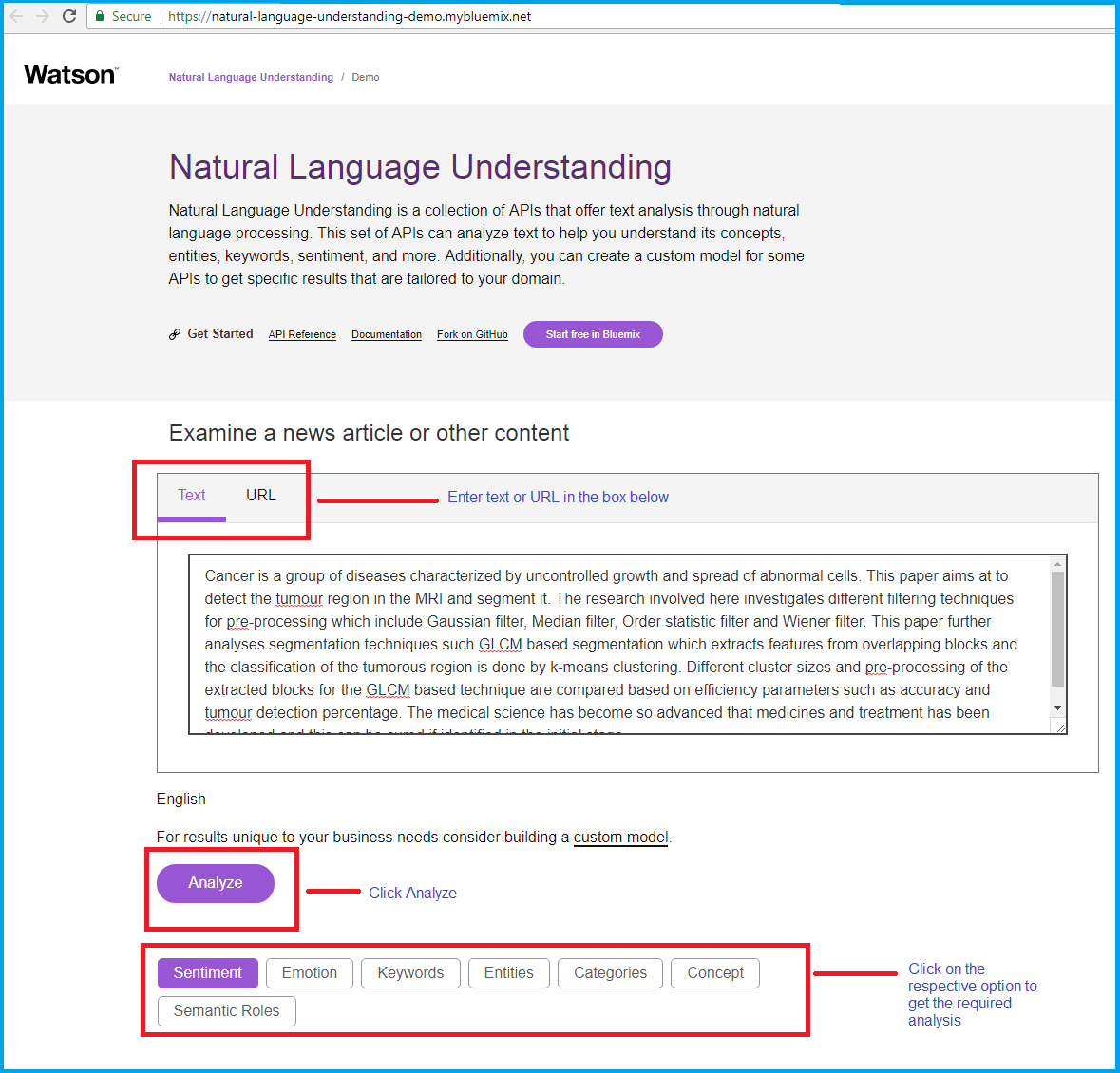
-
Once you enter the text in the text box, click Analyze.
-
Click on the required parameter to get the corresponding results.
Currently, Watson provides text analysis against seven parameters as shown above – Sentiment, Emotion, Keywords, Entities, Categories, Concept, and Sematic roles. We are sharing two of the results for your reference:
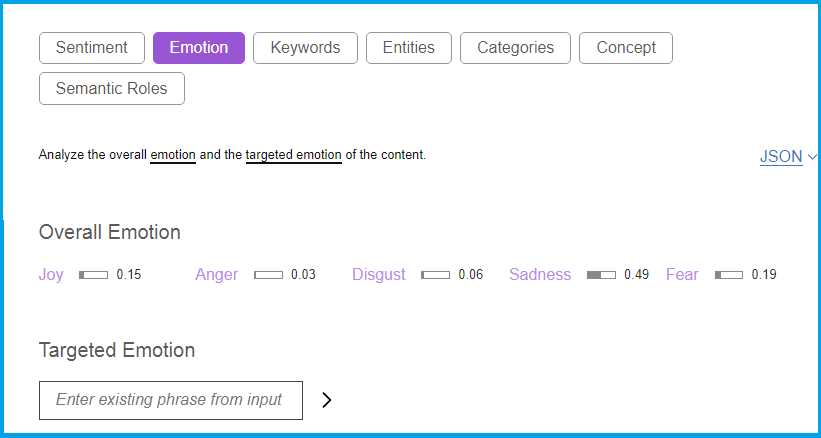
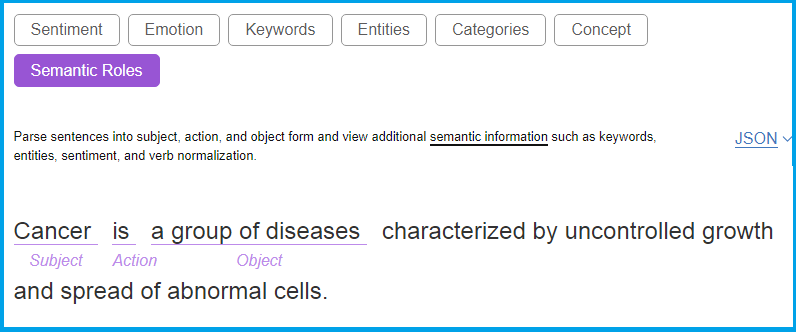
Natural Language Processing with Stanford NLP
Stanford NLP provides human language technology tools that can provide the base forms of words and their parts of speech. It can identify whether the words are names of companies or people. Stanford NLP is an integrated NLP toolkit with a wide range of grammatical analysis tools. It supports a number of human languages and supports high quality text analytics. Stanford can be run as a simple web service and APIs are available for most of the latest programming languages.
We will analyze how Stanford NLP works using the demo available on their website.
-
Open the following URL in a browser
-
http://corenlp.run/
-
Enter a sample text as shown in the following screenshot:
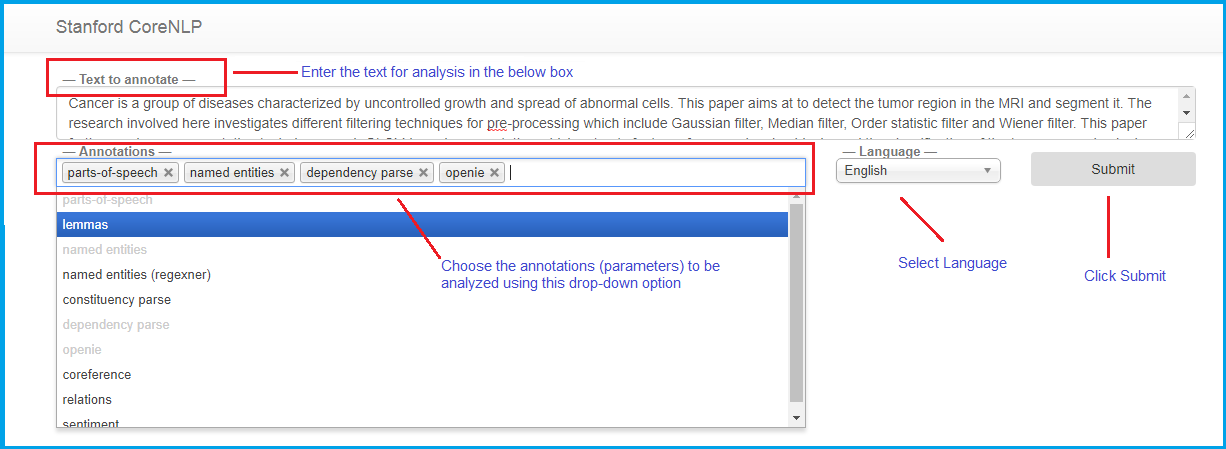
-
Once you select the required Annotations as well as the Language, and click Submit, Stanford NLP displays the corresponding results.
-
We are sharing two of the results for your reference.


A Quick Comparison of IBM Watson and Stanford NLP
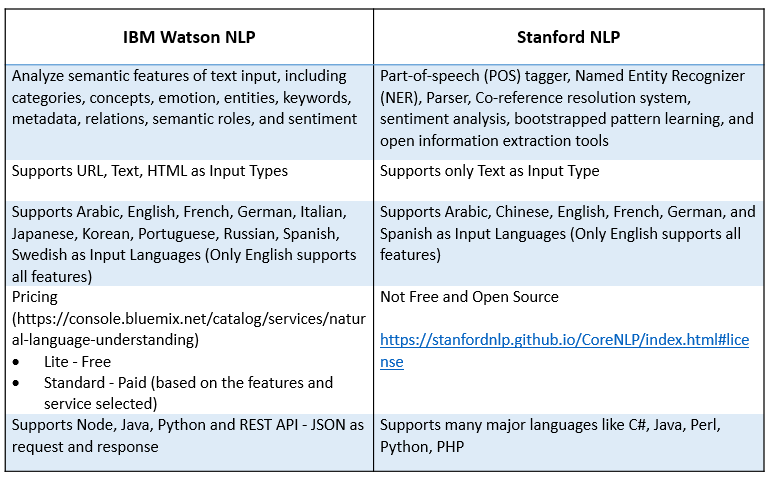
Note: Stanford’s Part-of-speech (POS) tagger and Co-reference resolution system are not available in IBM Watson.
Natural Language Processing Solutions from Zerone Consulting
We hold a fair share of experience in implementing NLP solutions that supports businesses to generate insights-driven engagement strategies. Contact us to know more.